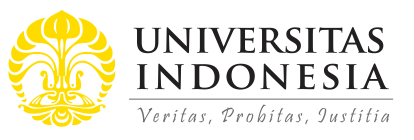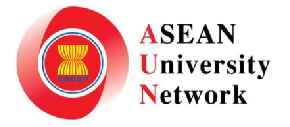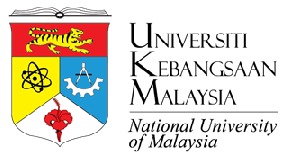
Abstract
Municipal solid waste has become one of major environmental issues and pollution sources. In cities of developing countries, the amount of waste is inversely proportional to the land area available for landfills. Cipayung Landfill in the city of Depok, Jakarta’s southern border, cannot support the volume of waste generated by the city’s 11 districts. This study presents the case of a community group in Tugu Village, Cimanggis, Depok, where a waste separation program had been adopted since 2014 but low rates of participation are still recorded. Earlier observations reveal uneven distribution and location of communal organic bins and transportation of mixed waste. Earlier researches discussed over relationship between waste management and people participation, information dissemination, environmental knowledge, attitude, behavior, facility availability, partially. Thus, this study aims to integrate all these notions by examining the correlations between participation, information exposure, environmental knowledge, environmental attitude and other conditions that may promote participation in waste separation practices. Quantitative approach with quantitative and qualitative methods is implemented. Questionnaires, interviews, and observations are used to collect data. Spearman correlations reveal that participation is very strongly correlated with information exposure, and environmental knowledge, but weakly correlated with environmental attitude. Other conditions include respondents’ daily activities, residence period in the community, family welfare level, facilities provision, and role of community leaders. This study confirms the importance of information dissemination on a routine basis, valid and persuasive messages, facilities provision, and leading actor’s role at the community level to help increase public participation in waste separation
References
Aquino; Ann, Peachie; Delina; Laurence; Fernandez; Charlemagne; Baguio; Armando, J. (2008). Mobilizing public support for a sustainable solid waste separation: The case study of Santo Tomas municipality, Philippines.
Arbi, A. (2015). Governmental communication strategies in socializing waste management. International Journal of Social Science and Humanity, 6(8), 643–652. https://doi.org/10.7763/ijssh.2016.v6.726
Asteria, D. (2012). Klasifikasi Literasi Lingkungan (Environmental Literacy) pada Perempuan di Tipologi Wilayah Perkotaan. Universitas Indonesia.
De Vaus, D. A. (2002). Survey in Social Research. In New South Wales: Allen & Unwin.
Desa, A., Abd Kadir, N. B., & Yusooff, F. (2012). Environmental Awareness and Education: A Key Approach to Solid Waste Management (SWM) – A Case Study of a University in Malaysia. Waste Management - An Integrated Vision. https://doi.org/10.5772/48169
Diekmann, A., & Preisendörfer, P. (1998). Environmental behavior: Discrepancies between aspirations and reality. Rationality and Society, 10(1), 79–102. https://doi.org/10.1177/104346398010001004
Erlinna, A. (2012). Pengaruh Keberadaan TPA Cipayung Depok terhadap Kualitas Sumber Air Bersih di Wilayah Permukiman Sekitarnya (Dengan Parameter Besi dan Mangan). Universitas Indonesia.
Fagariba, C., & Song, S. (2017). Assessment of impediments and factors affecting waste management : A case of Accra Metropolis. Academia Journal of Environmental Science, 4(8), 144–162. https://doi.org/10.15413/ajes.2016.0125
Handono, M. (2010). Model Pengelolaan Tempat Pemrosesan Akhir (TPA) Sampah Secara Berkelanjutan di TPA Cipayung Kota Depok-Jawa Barat [Tesis]. https://doi.org/http://dx.doi.org/10.1533/9780857094940.305
Kaiser, F., Fuhrer, U., & Wolfging, S. (1999). Environmental attitude and ecological behaviour. Journal of Environmental Psychology. https://doi.org/10.1080/00377990903493853
Keraf, S. (2006). Etika Lingkungan. Jakarta: Penerbit Buku Kompas.
Mancl, K. M., Carr, K., & Morrone, M. (2003). Profile of Ohio adults with low environmental literacy. Ohio Journal of Science, 103(3), 38–41.
Notoatmodjo, S. (2003). Pendidikan dan perilaku kesehatan. Jakarta: Rineka Cipta.
O’Brien, S. R. M. (Iowa S. U. (2007). Indications of environmental literacy: using a new survey instrument to measure awareness, knowledge, and attitudes of universityaged students. Retrospective Theses and Dissertations, 113.
Office of Sanitation and Environment Depok City. (2015). Pemutakhiran Strategi Sanitasi Kota Depok.
Ogawa, H. (1996). Sustainable Solid Waste Management in Developing Country. 7th ISWA International Congress and Exhibition, Parallel Session 7, Yokohama.
Permana, A. S., Towolioe, S., Aziz, N. A., & Ho, C. S. (2015). Sustainable solid waste management practices and perceived cleanliness in a low income city. Habitat International, 49, 197–205. https://doi.org/10.1016/j.habitatint.2015.05.028
Regional Planning Agency Depok City. (2008). Penyusunan Rencana Induk Persampahan Kota Depok Tahun 2008-2018.
Ruben, B. D., & Stewart, L. P. (1998). Communication and human behavior. Boston: Allyn & Bacon.
Setiana, L. (2005). Teknik penyuluhan & pemberdayaan masyarakat. Bogor: Ghalia Indonesia.
Siebel; Maarten, Alexander; Rotter, Vera Susanne; Nabende, Agnes; Gupta, J. (2013). Clean development mechanism: a way to sustainable waste management in developing countries? Journal of Springer Vienna, 65(1), 42–46. https://doi.org/10.1007/s00506-012-0052-4
Soerjani, M. (2009). Pendidikan lingkungan sebagai dasar kearifan sikap dan perilaku bagi kelangsungan kehidupan menuju pembangunan berkelanjutan. Jakarta: Institut Pendidikan dan Pengembangan Lingkungan.
Sudarmadi, S., Suzuki, S., Kawada, T., Netti, H., Soemantri, S., & Tugaswati, T. A. (2001). A survey of perception, knowledge, awareness, and attitude in regard to environmental problems in a sample of two different social groups in Jakarta, Indonesia. Environment, Development and Sustainability, 3, 169–183.
United Nations Environment Program. (2016). Guidelines for Framework Legislation for Integrated Waste Management. Retrieved from http://www.unep.org/Documents.multilingual/Default.asp?DocumentID=78&Artic leID=1163
Von Borgstede, C., & Andersson, K. (2010). Environmental information: explanatory factors for information behavior. Sustainability, 2(9), 2785–2798. https://doi.org/10.3390/su2092785
Wibowo, A. (2010). Hubungan Intensitas Terpaan Sosialisasi dan Kampanye terhadap Sikap Masyarakat pada Pelaksanaan Pilwalkot Semarang 2010.
Widiastuti, A., Hartono, D. M., Moersidik, S. S., & Gusniani, I. (2018). Characteristics of leachate and their effect on shallow groundwater quality (case study: TPA Cipayung, Depok). IOP Conference Series: Earth and Environmental Science, 120(1). https://doi.org/10.1088/1755-1315/120/1/012003
Wright, Y. L. (2011). Relating recycling: Demographics, attitudes, knowledge and recycling behavior among UC Berkeley Students. Journal of Spring. Retrieved from http://nature.berkeley.edu/classes/es196/projects/2011final/WrightY_2011.pdf
Young, R. De. (1988). Exploring the difference between recyclers and non-recyclers: The role of information. Journal of Environmental Systems, 18(4), 341–351.
Recommended Citation
Ruliana, Vita; Soemantojo, Roekmijati W.; and Asteria, Donna
(2019).
Assessing a community-based waste separation program through examination of correlations between participation, information exposure, environmental knowledge, and environmental attitude.
ASEAN Journal of Community Engagement, 3(1).
Available at: https://doi.org/10.7454/ajce.v3i1.120







